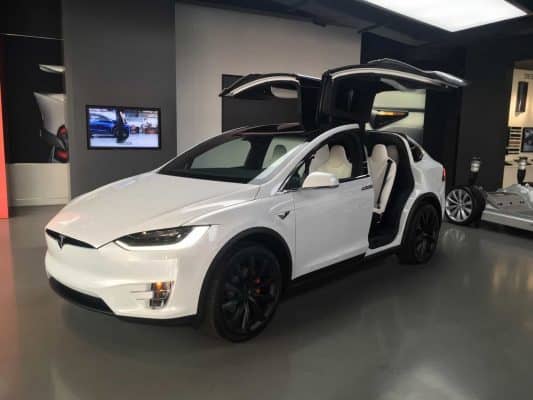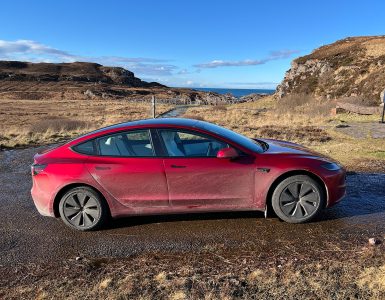Making Sense? Recent changes to VED (Vehicle Excise Duty) and cuts to grants for plugin hybrids and EV’s
The Government announced that the grants towards the purchase of plugin hybrid vehicles would cease and grants for pure EV’s would be cut from £4,500 to £3,500. As buyers rushed to take advantage of the old grants they used up the remaining quota the government allowed and so the new rules have applied early.
MyUrbanCar view
While there has been a predictable uproar about the grant cuts for EV’s and PHEVs these were never going to last for ever. The Chancellor does however, have the opportunity to fix a mess created by a his predecessor and exempt EV’s from the VED supplement of £310 per year for vehicles costing over £40,000. With grants now shrunk or gone it is even more vital that car tax does not penalise buyers of more expensive but much cleaner vehicles.
In November 2017 the government rightly signalled that diesels cars that can’t meet RDE2 120mg/km emissions standard in a real world NOx test should not be considered as clean for VED. Even this standard (due to be a requirement in 2020!) allows diesels to pollute as much as at least 2 petrol cars but currently only about 15% of diesels on sale could pass the test. Frankly cars that can’t manage this should have an end date for entry into urban areas. Many cities in Europe are are planning to ban all diesels in any case by 2025.
The luxury car tax VED supplement introduced in April 2017 on cars with a list price (inc options) of over £40,000 is more problematic. It is called a supplement because an additional £310 is added to any VED that would otherwise be due.
On the positive it does discourage the trend to upsize to a bigger heavier conventional car with every purchase (although not very effectively – someone swapping an Audi Q5 or similar pays no more for switching to a Q7 sized model but switching from a Q3 to a Q5 incurs £1,550 in extra road tax over 5 years!
The problem is it discourages people from buying cars worth over 40k and when applied to Alternatively Fuelled Vehicles (AFVs) in general, and pure EV’s in particular this becomes a tax on advanced technology. There are clear arguments for an exemption, especially for pure EV’s. These include:
- AFVs (other than diesel hybrids and diesel Plugin-Hybrids) produce lower CO2 and toxic NOx than conventional vehicles. Even the hybrids with short battery range reduce the amount of idling in traffic.
- Pure EV’s produce no NO2 and much lower CO2 even when you look at how much is used to generate the electricity (based on UK energy mix).
- Pure EV’s are also likely to produce much lower levels of particulates that are harmful to health. There will be none from the exhaust (because there isn’t one!). That leaves the tyres – no change there and the brakes. Some air quality experts have argued that EV’s could produce more particulates from their brakes because they are heavier. This is probably true with hybrids but pure EV’s have more aggressive regen (so instead of turning energy into heat and brake dust the power is put back into the batteries). Anecdotal evidence from EV owners is their brake pads last around 3x as long as on conventional cars – and should produce less dust.
- AFV’s have technology which is more expensive and needs to be sold in greater volumes to allow costs to fall.
- It’s clearly non sensical to give a grant to encourage people to buy AFV’s and then hit them with higher taxes in year 2 onwards.
- The second hand car market is still nervous about AFV’s in general and EV’s in the particular. Hitting these cars with a tax on used buyers trying out advanced EV’s second hand again makes no sense.
- AFV’s are the future and carmakers that are rightly investing in the transition from failed dirty diesel technology need high value sales from early adopters of EV’s to make this transition.
- Dieselmakers & their supporters are rightly losing the battle to sell diesels as clean technology. Diesel even in a hybrid clearly is not a solution to anything. But where dieselmakers like Jaguar-Land Rover, Audi, BMW and Mercedes provide clean petrol hybrids or EV alternatives that are initially more expensive to consumers it is non sensical that they and their customers be taxed for doing the right thing.
- Finally with AFV sales in the first 2 months of 2018 running at 5.1% of the market and pure EV sales a fraction of that this would not be a costly measure.
- There are many interest groups argueing for their own exemption from one tax or another. Indeed London taxi drivers have just obtained an exemption from this VED supplement for new Taxi’s. There is a strong arguement that this would simply join up the VED surcharge with other measures to encourage clean progress to vehicles that do much less harm to health. People who choose to pile their money into a Tesla or an I-Pace should not be discouraged!






